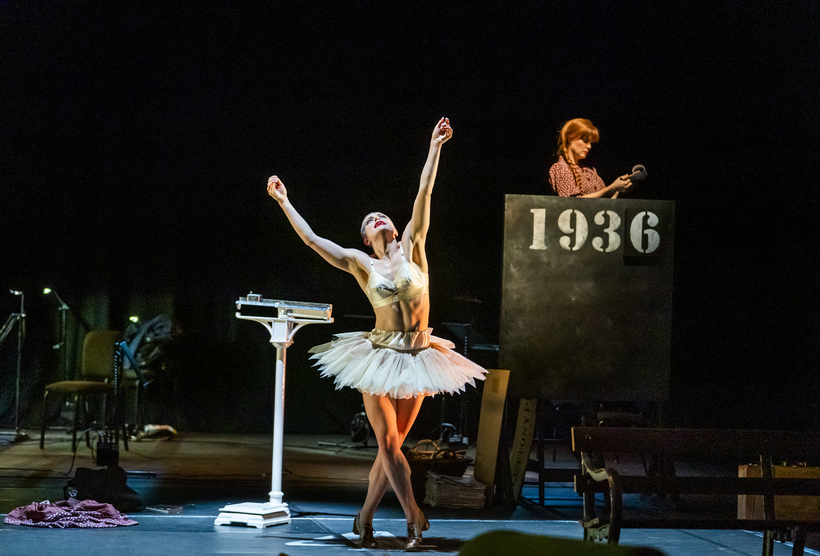What’s your American Dream? For Anna in Bertolt Brecht and Kurt Weill’s The Seven Deadly Sins, it’s home sweet home on the banks of the Mississippi in the bosom of Mom, Pop, and two no-account brothers. And Anna is the one who’s going to make it a reality. See how in an Opera North production filmed live in Leeds in November 2020.
The Seven Deadly Sins was the last major collaboration by the team that shot to glory with The Threepenny Opera (1928) and the subsequent Rise and Fall of the City of Mahagonny (1930). The year was now 1933; both men were on the run from the Nazis, Weill because he was Jewish, Brecht because he liked Marx. Having fetched up in Paris, Weill connected with the plutocrat Edward James, founder of the new dance troupe Les Ballets 1933, a showcase for his wife, Tilly Losch. James promptly commissioned a score, for which Weill summoned Brecht from Switzerland to write a libretto.
It was understood from the start that the new work would be a vehicle not only for Mrs. James but also for Mrs. Weill, the iron butterfly Lotte Lenya. Brecht cooked up the character of Anna, who bounces around America chasing dollars as a stripper, a Hollywood extra, a kept woman, and a femme fatale. Lenya would have known a thing or two about transactional eroticism. Apart from her stage roles as a hooker, she was trading sex for money in her native Vienna by the age of 12.

If Brecht thought he had a diva problem, he solved it like a second Solomon, slicing his heroine neatly in two. Anna I, “the smart one,” is the manager in this partnership, keeping a sharp eye on business. Anna II, a dancer, is the flaky talent, prone to prioritizing the deadly sins of artistic fulfillment, social justice, and love.
Though this “ballet with singing” runs a swift 40 minutes, The Seven Deadly Sins is no mere footnote to the Brecht/Weill canon. Seldom is Brecht’s satire sharper or less predictable, and Weill’s driving, mercurial score ranks with his best. For Opera North, James Holmes conducts the tangy new chamber arrangement for 15 players by HK Gruber and Christian Muthspiel, sung in Michael Feingold’s smart American translation. Stage direction and choreography are by Gary Clarke, a storyteller to reckon with.
As Anna II, the initially woebegone Shelley Eva Haden jolts you to attention with her jagged and razor-sharp fury. As Anna I, the mezzo-soprano Wallis Giunta cuts a contrasting figure of cool glamour, soft-pedaling the character’s cynicism in tones paradoxically sleek, reassuring, and fresh. Rounding out the cast is the all-male quartet of selfish, sanctimonious folks back home who scold and shout hymns to the gods of materialism. Ideally, you want harder, meaner voices than Opera North fields here, in particular for the bass part of the Mother, written for Boris Godunov on a busman’s holiday.
The Seven Deadly Sins will stream on the OperaVision Web site through October 8
Matthew Gurewitsch writes about opera and classical music for AIR MAIL. He lives in Hawaii

